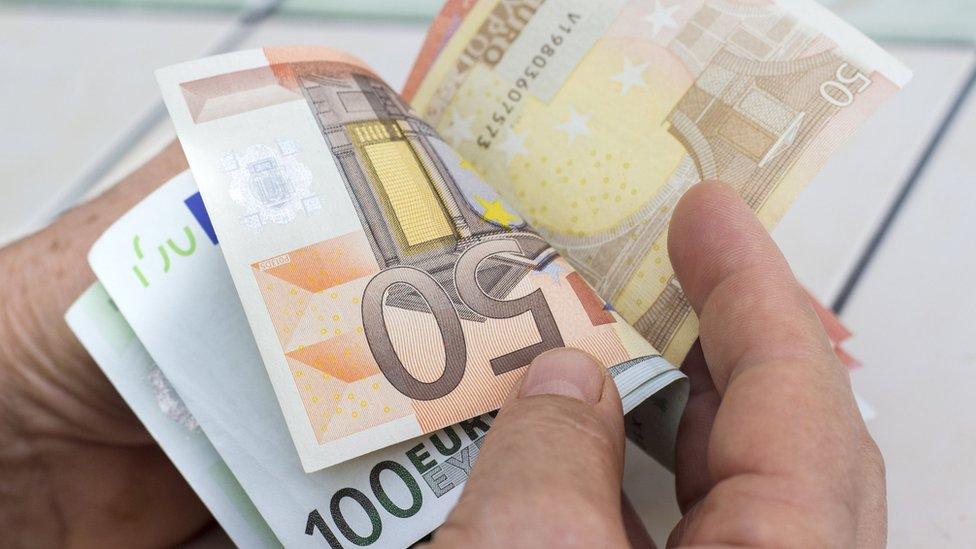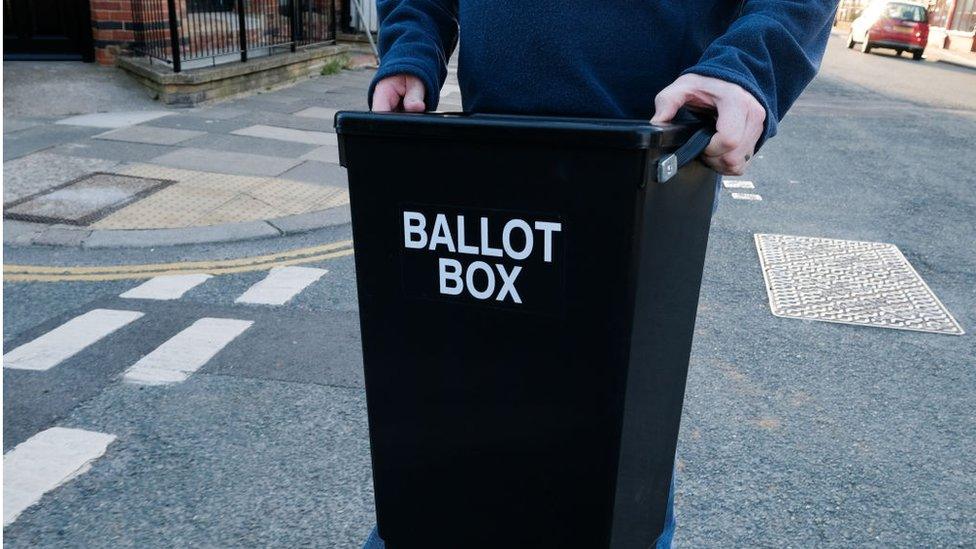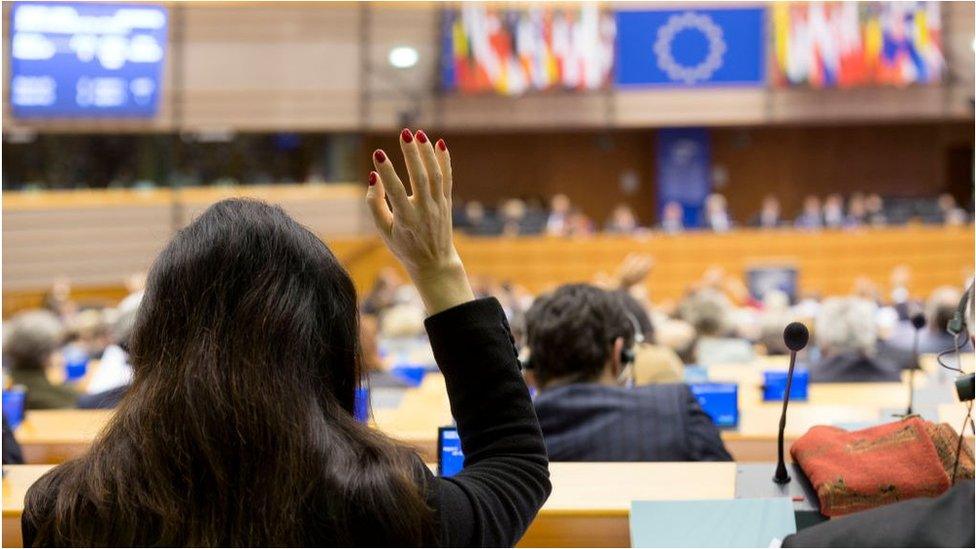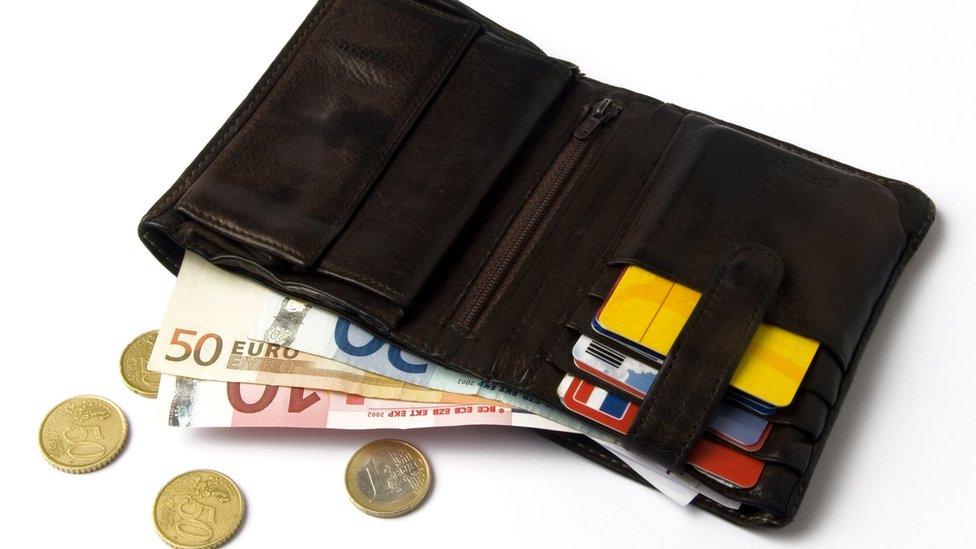Will MEPs get pensions and other frequent questions
- Published

The Reality Check team has been asking for your questions and claims that you think we should be investigating.
Here are five of the questions we have been asked most often in the run-up to the European elections.


Peter asks: Is the European election first past the post?
No - you can find out about the voting system here.
In England, Scotland and Wales it's run on a proportional representation rule called the D'Hondt system, which means the electorate gets to vote for one party and then the seats are allocated based on party lists.
In Northern Ireland, there is a single transferable voting system in place, which means that voters get to rank the parties in order of preference.

Lisa asks: How many "X"s can each person have - one or six?
We've been asked lots of specific questions about how you go about voting in the elections, which are all answered here.
You vote for one party in all of the UK except Northern Ireland, where you rank the parties in order of preference.


Sharon asks: What happens to the new MEPs if we end up leaving six months from now?
When the UK leaves the EU, it will no longer have any seats in the European Parliament.
We've been asked about their pay and pensions provision, which is explained in this piece.
Readers have been particularly interested in their pension provision.
New MEPs will take their seats on 2 July but will not be eligible for a pension unless they work for at least a year.


Helen says: I have been sent an email about the impact of the Lisbon treaty on UK law if it were to remain in the EU. Would the UK have to join the euro?
We've had a lot of questions about social-media posts and emails saying that if the UK were to stay in the EU, it would have to adopt the euro as its currency after 2020.
We have written this piece on the subject.
The claims are not correct - the UK has an optout that means that, even if it were still in the EU after 2020, it would not need to adopt the euro.

Colin asks: If the UK reduces its tariffs to zero on particular items, do the other WTO countries have to reciprocate?
We've been asked a number of questions about World Trade Organization (WTO) rules, which the UK would be trading under if it left the EU with no deal.
The answer to this one is no, they would not have to reduce their tariffs (taxes on UK exports) to zero.
It's explained in this piece about trade rules. The important point is that the UK could not just reduce tariffs to zero for one or two countries with which it does not have a trade deal - it would have to cut tariffs for all of them.
And the same applies for other countries considering cutting tariffs on UK exports.


